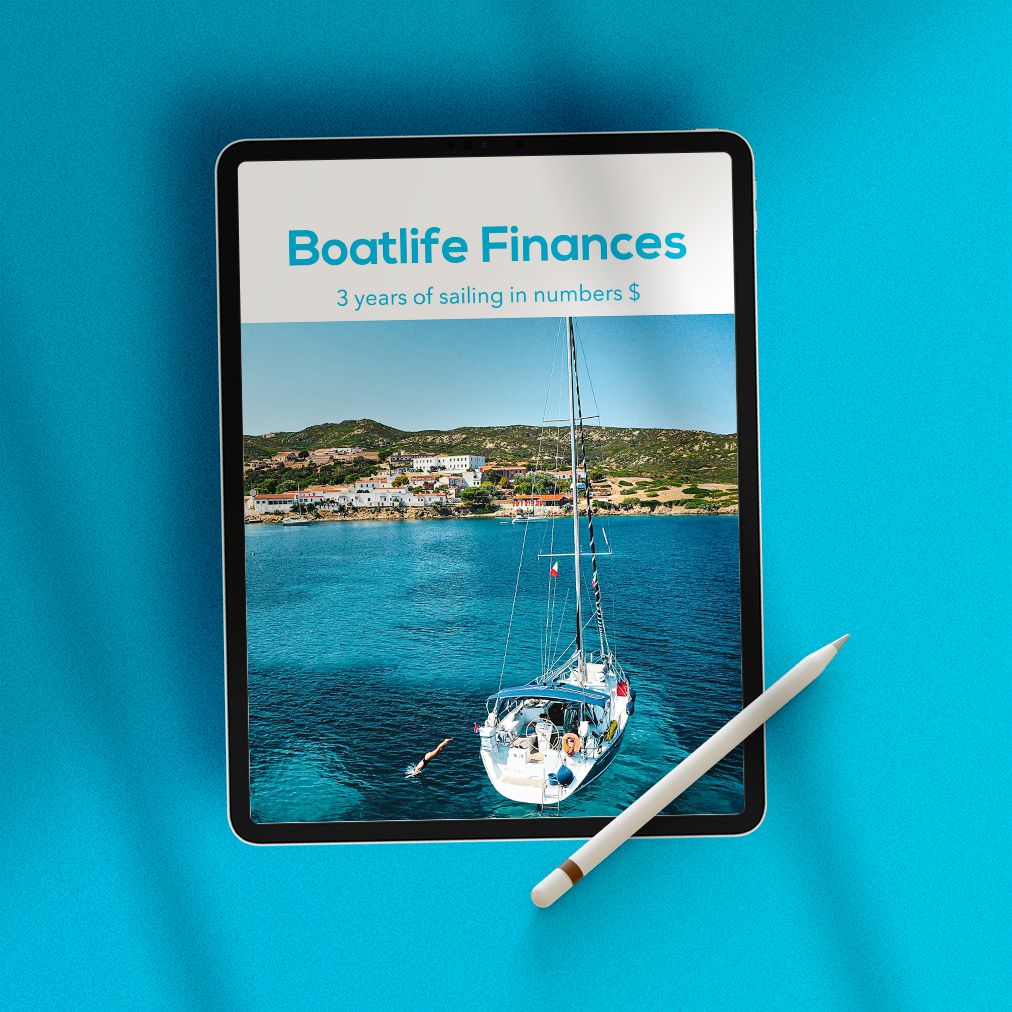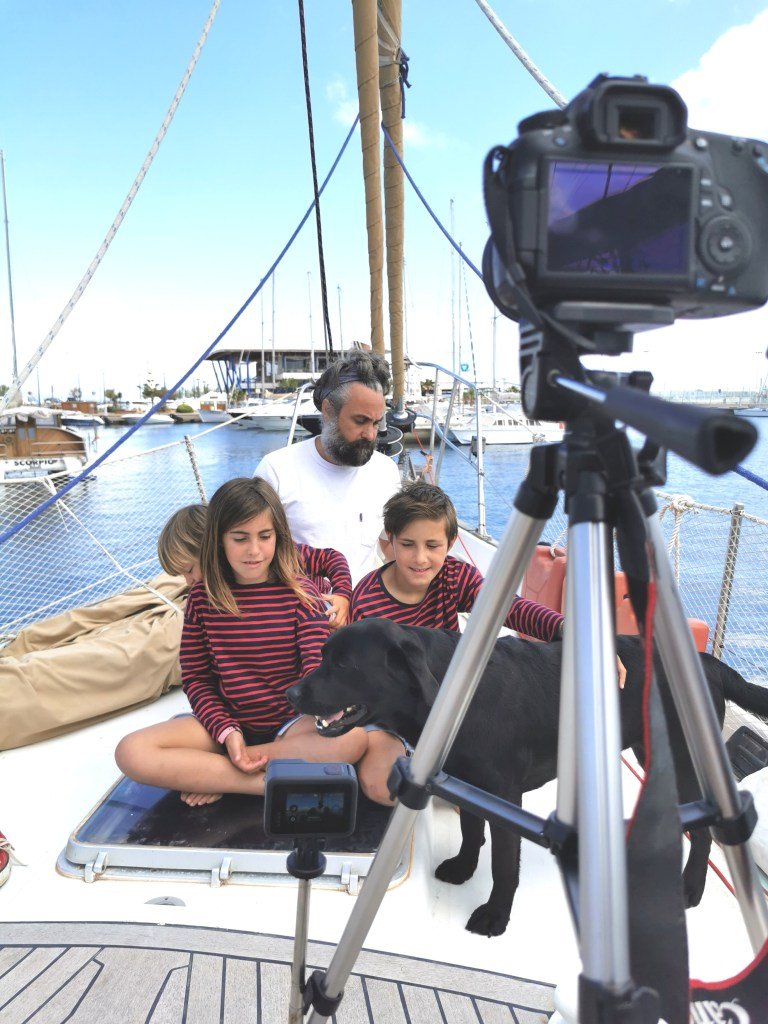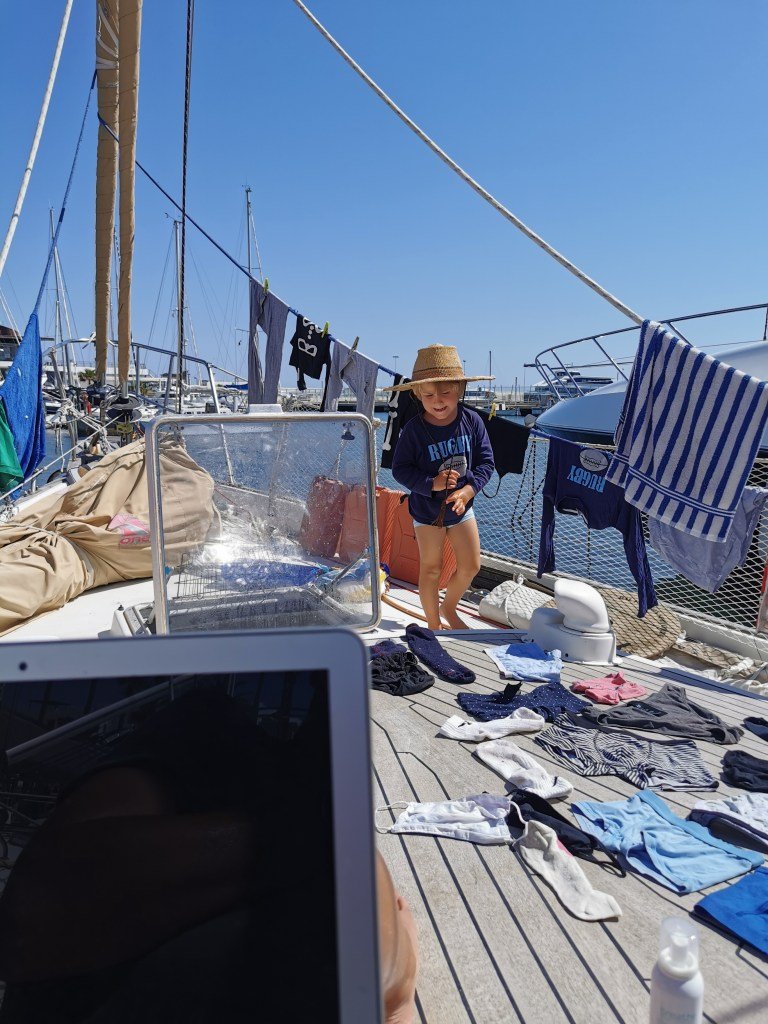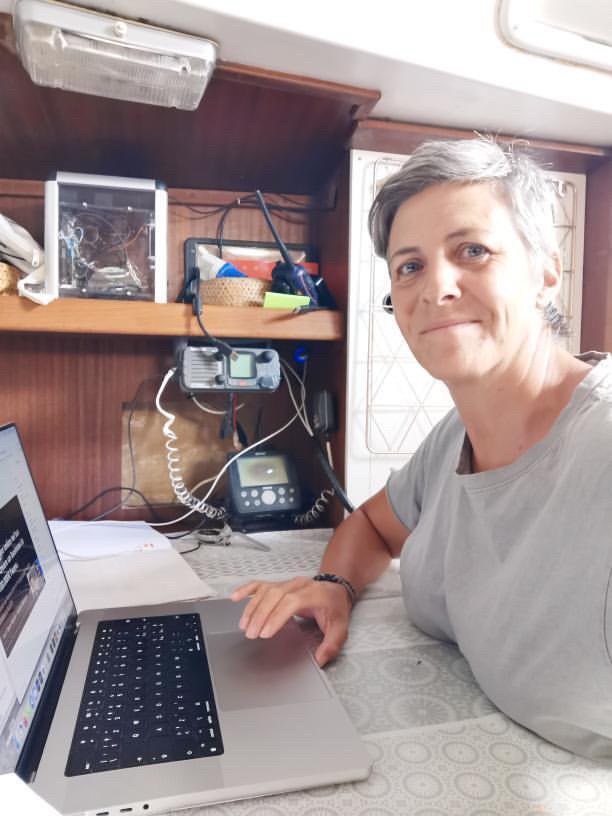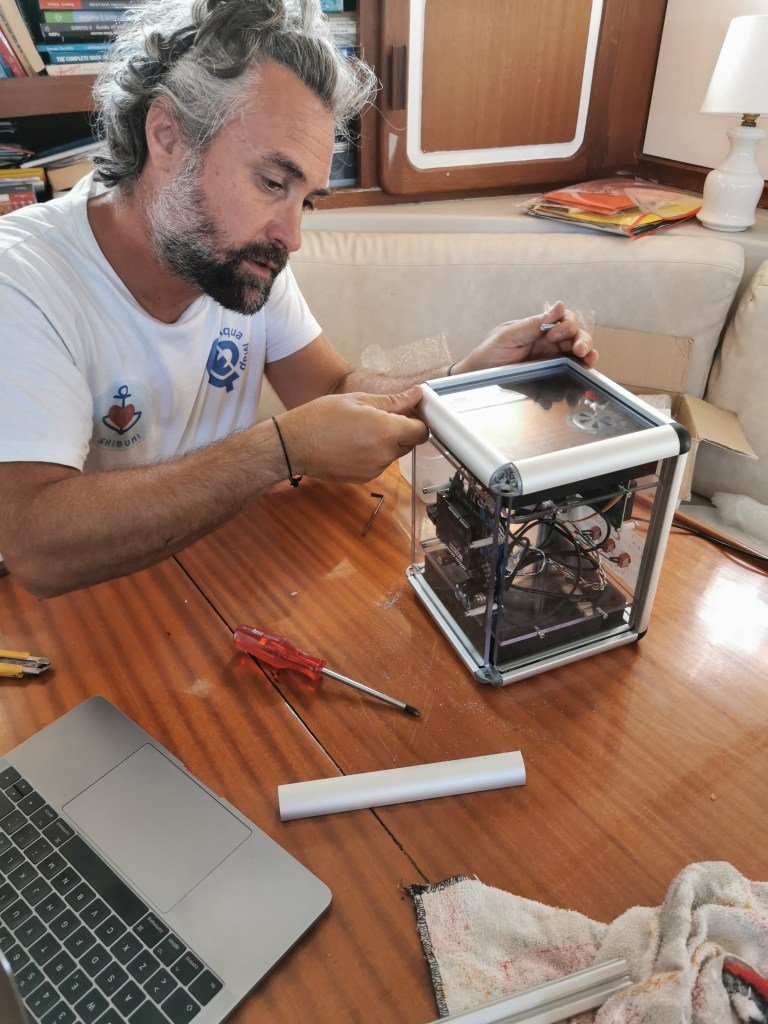Nuclear technician and textile designer on a sailboat (Boatlife stories)
Welcome to Boatlife stories. In this interview series, we talk to liveaboards around the globe about how they made their Boatlife dream a reality. In particular, we will look deeper into how they moved on board and are now financing their life on board. We will publish a new story every 2 weeks, so subscribe to our newsletter to avoid missing it.
Today we are talking to Sara and Stefano aboard their sailboat Shibumi.
Tell us how your Boatlife started
Sara: Basically, our liveaboard life came about because we looked each other in the eyes and said we only have one life; let's live it as we see fit. Let's not wait for retirement money to buy our boat and live our life. Let's risk it now when we are forty and see how it will go. The curiosity about living a slightly different life, outside the patterns of the life we already knew, has driven us to go for it.
Stefano: In 2016 we bought Shibumi for 60K, a bargain because the owners had to sell quickly. For the first 3 years, we went back and forth between our life in Milan and the boat in Greece. We fixed her up, equipped her and tested her in the waters of the Aegean Sea, the gym for us sailors.
Sara: In 2020, we sold the house (part of which was still under mortgage) to have the financial means to sail for a year, and Stefano took leave from work for a sabbatical year. Our idea was to sail to the Caribbean and then figure out if Stefano would quit, if we would offer charters, if we would sell the boat and go back. All this while trying to fit in the children and their education which was also a big unknown.
The only asset we had was the house in Milan - half because half was still under bank mortgage.
Well its 2022 now, so I guess you did not go back after one year of Boatlife?
Sara:No, we did not. Things did not go according to our liveaboard plans. 2020 turned out to be a challenging year to leave for our one-year adventure. But the house was sold, the kids out of school and Stefano on sabbatical leave, so we decided to go for it. Between bad weather and lockdowns, we barely made it out of the Mediterranean Sea. We got stuck for 7 months in Formentera but finally arrived in the Canaries in October 2021. Our goal was to cross the Atlantic, but October 2021 was also the end of Stefano's sabbatical leave, and our savings had dried up. So we needed to rethink our boatlife plans.
What is the new plan and what kind of income streams did you create?
Sara: When we were in lockdown, we didn't have time to create new liveaboard income streams because we had three children with homeschooling. The parts of the work we did - we were a bit naive - we did in research and dissemination, all things we did for free. In October, we decided that the kids attend the Spanish school here in the Canaries while we focus on the income. I follow our Instagram account and do some collaborations. Moreover, I do photo research for agencies, follow a couple of Social Media accounts as a content creator and design fabric prints every now and then, like I used to back on land.
Stefano: I work as a technologist at the National Institute of Nuclear Physics in Milan. Until December 2021, I could work remotely and always be in Lanzarote. However, now I do a reduced type of smart working - one week in Italy, one week in Spain. I could do everything remotely, but we have some hardware to fix, so I need to be physically there from time to time. It's a flexible thing, I can be in Lanzarote for longer periods, as long as I do longer periods in Milan.
How is boatlife as an extreme commuter?
Sara: It's a sacrifice. When Stefano returns to Italy, he stays with his mum and dad, as we no longer have a house. Me being alone with all three kids is quite the commitment. But it's OK. There are so many other things of boatlife that compensate for these sacrifices.
Stefano: It's not ideal, but it allows us to have a fixed salary at the moment. It gives us the security to pay the port and feed the children. With three children, the responsibilities are too big to resign. It would be a different situation if it were just the two of us. It's not the final solution, but at the moment, we have this compromise for maybe next year. The children go to school, and I commute while we take our time to see if we can find another equivalent income. Or Sara gets very rich, I quit and we leave. #laughs
I am currently commuting Milan-Lanzarote. 4 hours by plane.
What is your main difficulty right now in creating an equivalent liveaboard income stream?
Sara: Finding the time to implement our ideas. Between kids, dog and boat, there is almost no time left for anything else. Being of a creative nature, having this talent for creativity, organisation, global vision on an image level, I could do a lot of work. I have often told myself to do youtube videos because I have so much material.
I think if it weren't for the kids Stefano would have quit his job. He's so good at doing anything in terms of hardware, software, networks or programming. Stuff he could do for anyone and anywhere. He put together the whole energy monitoring system on our boat, which he could sell for example.
Stefano: The problem when you have children, not one but three, is you can't mess around. You can't say I'll quit, and then something will happen. Alone you eat bread and potatoes, but with three children? The fact of doing this life with or without children radically changes your outlook and your responsibilities. It changes everything. For now, we keep a stable job before jumping into new opportunities.
Do you have an office on board?
Sara: Our idea was to transform our big chart table into an office, but ultimately it became storage for everything from dog food to tools. I repurposed the storage cabin a few months ago, where we have the washing machine, the watermaker and a small table. That has become my office because it's the only place I can be alone in silence. Now it's back to being a storage cabin. It weighs heavily not having an office. Although most jobs only require a computer, I miss having a mood board as I had in Italy. It is something I can't recreate on the boat.
Apart from laptops, what else do you need on board to be able to work?
Stefano: We have 8 AGM lead-acid service batteries, photovoltaic panels for 1100W and a wind turbine that doesn't yield much. Then we have a big 2KW inverter for washing machines and similar and a small inverter for our laptops. We have two Spanish SIM cards with no traffic limit for the network connection. One is a hot spot that gives Internet access to everyone, and one is just for Sara's phone. So we have WiFi on the boat without limits. We also tried Skyroam but used it very little. We keep it on board as a backup.
Sara: Then we would need silence and time to focus. Not sure where we should find that. #laughs at the end you need a computer, power and data.
Ideas for the future, are you going back land-life?
Stefano: Maybe work with charters. We gained some experience by helping friends with a day charter last year, but having people on your boat, which is your home, is very difficult.
Sara: The idea of going back is non-existent. The years on the boat were tough, but life has always had difficulties. Economic difficulties, mental difficulties. Seeing Stefano cry while fixing the boat showed our fragility in front of something bigger. He would say, "what have I dragged you into? Will we ever make it?". In those moments, we would look each other in the eye and say, "we are already making it". With your head, you are already in a mechanism that is no longer part of land-life. You start to feel part of something bigger, like a citizen of the world. Whereas in the city, one feels like a god on earth, when you live at sea, it makes you feel so small and humble that you look at everything with new eyes. Any effort you make is a satisfaction. Boatlife is hard work, but if I look at the broader context, I am in my underwear all day, can jump into the water whenever I want, sleep under the stars, and meet wonderful people from morning to night.
Recommendations for future liveaboards?
Sara: Boatlife requires a lot of flexibility. We struggle to plan both working hours and sailing routes. On a boat, you have to adapt to the weather and the inconveniences that always arise. Even when I work, there are always interruptions for various reasons, from sailing to children. You don't manage to have a daily routine split to the minute. But it's still worth it.
Stefano: It takes flexibility, entrepreneurship and resourcefulness. If you stay on the couch and hope to get rich, your life will go on as usual. When they see you or us, they often don't realise the work that goes into it and that they, too, could put in. I don't say necessarily on a boat, but being a digital nomad.
Read more about Shibumi on their website or follow their story on Instagram.




